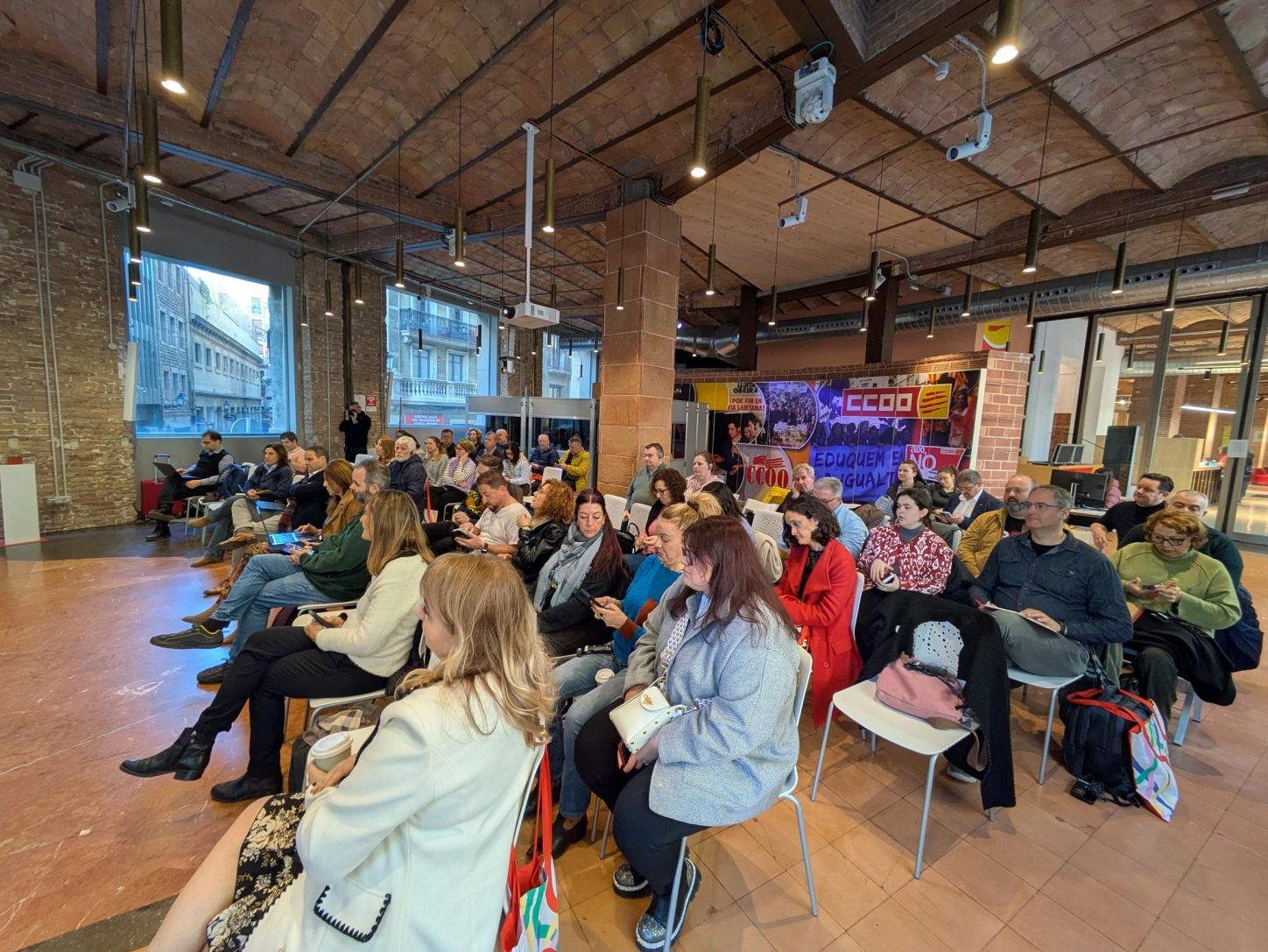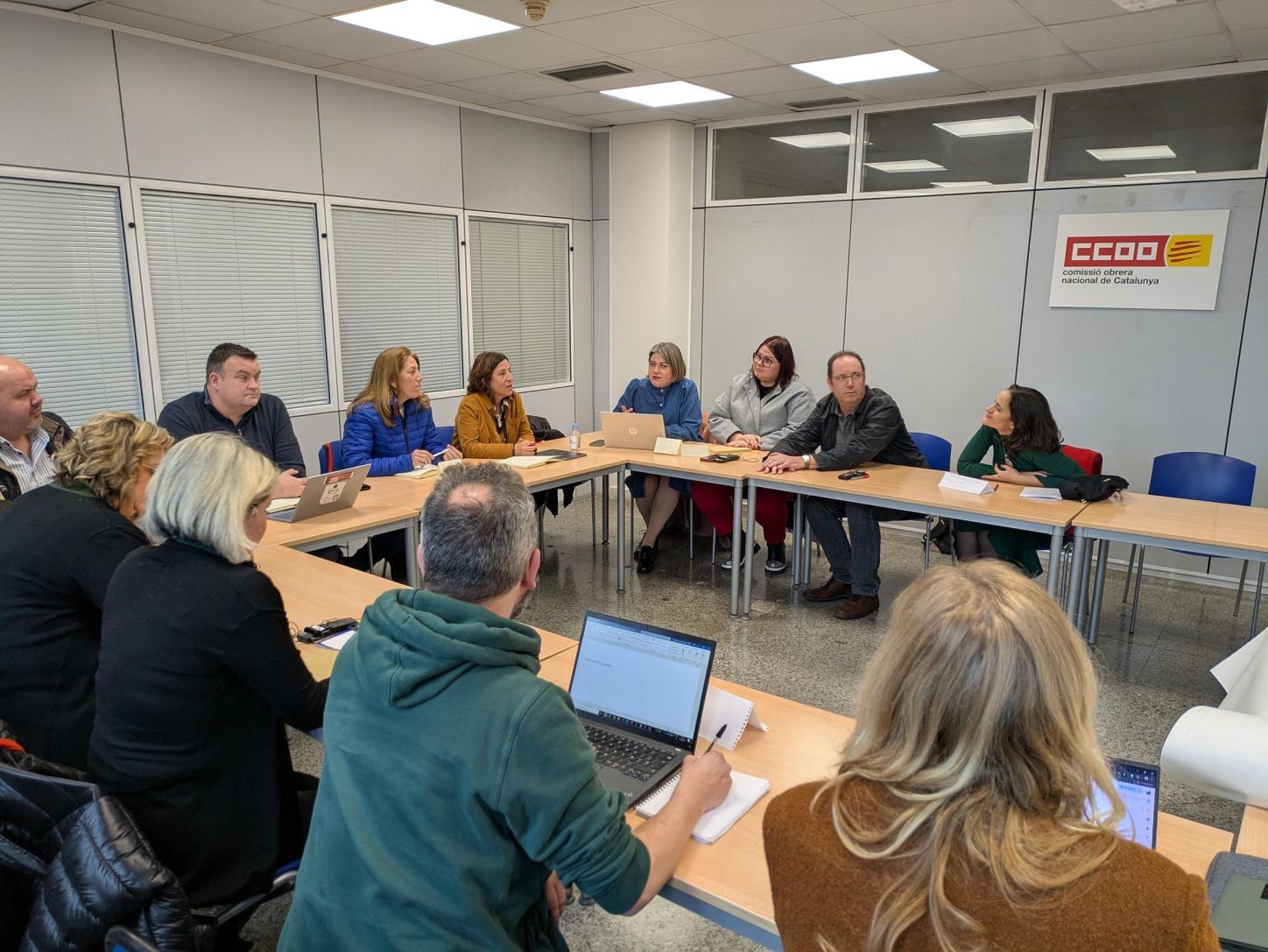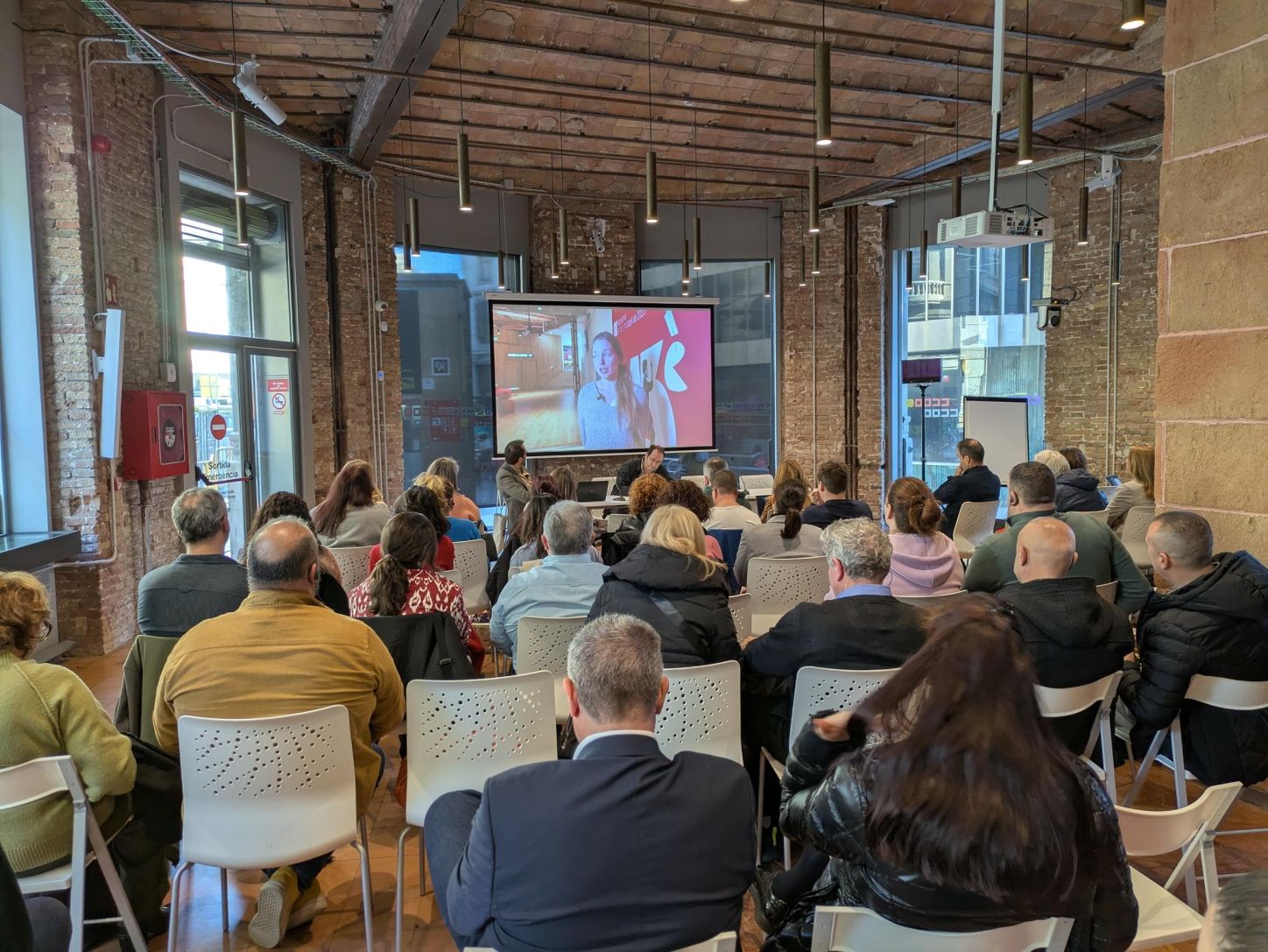
ETUCE Training Workshop: Strengthening Trade Union Leadership in Education
The European Trade Union Committee for Education (ETUCE) held the first training workshop of the Your Turn 2: Teachers for Trade Union Renewal project in Barcelona on 25-26 February 2025. The event brought together teachers and trade unionists from across Europe to examine strategies for reinforcing union organisation and fostering leadership within the profession.

Participants engaged in discussions on the evolving role of trade unions, the obstacles they encounter in different national contexts, and opportunities to expand their influence. A key focus was on shifting union membership from a transactional relationship—where individuals join primarily for personal benefits—to a model centered on workplace leadership and collective action.“Workers tend to take unions for granted. They don't see the connection between being a member of a union and having better pay and conditions” noted Stuart Anderson. Strengthening unions from within, rather than relying on external incentives, emerged as a priority.

A recurring concern was the difficulty of attracting young teachers to unions.“Most workers in unions are older, and it's difficult to attract young people,” said Yurdita Kishkhenia from Lithuania. Many unions are perceived as service providers rather than as communities built on shared values. Additionally, financial instability in the profession further complicates recruitment. “ In many countries, salaries for teachers are low, making it hard to recruit and retain teachers in the profession” added Deborah Barroso from Spain.

The broader societal landscape also plays a role in diminishing union engagement. “ We see that individualism is rising, and many teachers are more interested in solving their own problems rather than moving collectively” observed Inger Marie K. Georgstad from Norway. With limited awareness of union benefits and workers' rights, building a culture of solidarity requires a new approach.

A central theme of the workshop was leadership development within unions. Rather than relying solely on national leadership structures, there is a need to empower workplace and mid-level representatives.“One challenge we have is how to build leadership within the middle of the union so that we have more resources to do this, rather than relying only on union leaders who don’t always have time” explained Stuart Anderson. Discussions explored practical ways to support emerging leaders and ensure a more distributed, sustainable model of engagement.

Another pressing issue was how unions communicate with younger teachers. “ We need to communicate differently with new or young members because they have different values and cultures. We need to meet them where they are and focus on what matters to them” suggested one participant. While traditional recruitment methods may be less effective, some unions have seen positive outcomes when linking union membership to professional development opportunities.

The workshop reinforced the importance of collaboration—not only between unions but also within local communities. “ We need to work together—not only with other unions but also within our communities—to show the value of teachers and the work they do” concluded one participant. Strengthening these connections will be essential for ensuring that trade unions remain a vital force in education.

Through this initiative, ETUCE continues its commitment to revitalising union structures and developing leadership strategies that reflect the changing realities of the teaching profession.



